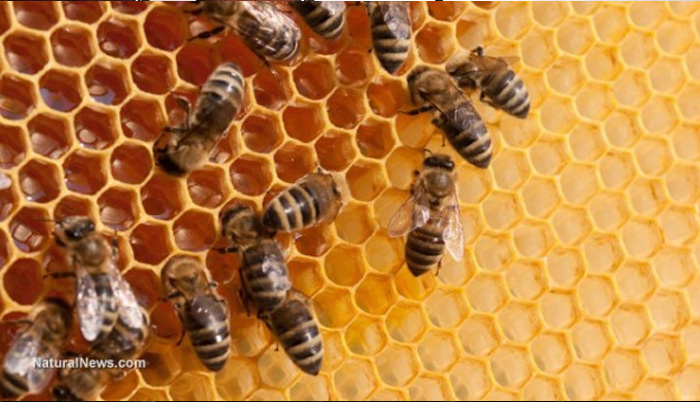![]() Home > Health
Home > Health
CONFIRMED: Pesticides Really Are Decimating Honeybee Pollinators By Killing Workers And Queens

![]() July 4th, 2017 | 09:48 AM |
July 4th, 2017 | 09:48 AM | ![]() 1343 views
1343 views
NATURALNEWS.COM
They had it coming. Beekeepers weren’t too surprised when studies came out and confirmed that neonic pesticides were killing worker and queen bees.
The study published in Journal Science found that 25 percent of bees that were exposed to high levels of neonic pesticides lose their lives. Study co-author Amro Zayed from the Toronto York University said: “We found higher worker mortality, deficits in learning and memory, differences in queen and reproductive biology. All of these have been found in other experiments by other researchers. So we’re validating all of these findings.”
It didn’t come as a surprise to beekeepers since neonic pesticides have already been in use for years now. Neonicotinoids belong to a new class of insecticides that are chemically related to nicotine. Neonicotinoid literally means “new nicotine-like insecticides” and it acts on certain kinds of receptors in the nerve synapse. A neonicotinoid is more likely to be lethal to invertebrates, like insects, rather than birds, mammals, and other organisms. It is popular because of its water solubility, which means it can be incorporated to soil and then absorbed by plants.
But using neonicotinoids may have serious repercussions to the ecosystem. An international study, as reported in CBC.ca, showed that one of the most common neonicotinoid pesticides is disrupting the reproductive health of wild bumblebees. The exposure to the chemical can affect the bees’ breeding cycle, and when that happens, it follows that there would be a decline in their numbers. Since bees are vital to farmers because they play a significant role in agriculture, losing wild bees would drastically affect the ecosystem.
The issue is very alarming. In fact, just last year, a survey conducted on behalf of the environmental group Friends of the Earth Canada suggested that about seven in 10 Canadians are very worried about the loss of the bee population. Nine out of 10 respondents expressed their belief that pesticides are the biggest threat to the survival of bees.
And the effects are showing. Over the last 10 years, beekeepers have been noticing a decline in the number of their colonies. They also observed one thing: the decline in bees was higher in colonies that live near corn or canola fields.
“We found that bees were exposed to neonicotinoids for most of the season, anywhere between three to four months on average. That was consistent across all of our study sites,” said Zayed. He recognized that while the level of pesticide exposure in all of their study sites was fairly low and not enough to kill a colony, it was very intense.
They also discovered that the pollen that they had gathered near the study sites didn’t come from corn but from other plants, plants that were not even present during the start of the growing season, during which time the pesticides were applied to the crops. “This indicates that neonicotinoids, which are water-soluble, spill over from agricultural fields into the surrounding environment, where are taken up by other plants that are very attractive to bees,” said Nadia Tsvetkov, a student at York University.
Because bees are vital to both plant and crop pollination, it is important to come up with ways to protect their species. Europe has called for a complete ban on neonicotinoids in 2013. Canada made the same move in 2015
Source:
courtesy of NATURALNEWS
by Tim Wesley
If you have any stories or news that you would like to share with the global online community, please feel free to share it with us by contacting us directly at [email protected]